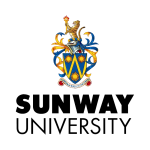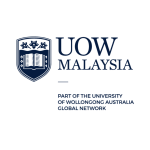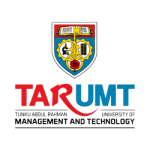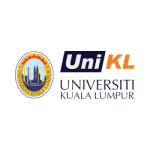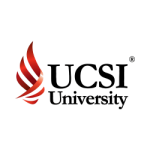
Students who enrol in face-to-face courses undergo a conventional educational path of attending lectures in physical classrooms on campus.
Although there is a rise in other learning modes, such as hybrid and online studies, in-person learning has always been and is still the norm for many educational institutions in Malaysia. Communicating directly with coursemates and lecturers can help students find a sense of community that may be lost in a virtual space for remote learners.
Studying a face-to-face course also allows students to extend their student life beyond classroom doors. They can gain valuable experiences on campus that can contribute to their personal and professional development. Students may join academic clubs, volunteer programmes, career workshops and more.
Read this article to learn more about studying a face-to-face course in Malaysia.
Types of face-to-face courses in Malaysia
Universities in Malaysia provide face-to-face programmes in various fields of study. You have a wide range of options to choose from, depending on your education level. Here are some examples of what you can study:
- Diplomas: On-campus diploma courses are available in various fields, such as human resource management, finance and hotel management. You can typically complete your programme in two to two and a half years.
- Bachelor’s degrees: Face-to-face bachelor’s degrees may cover areas such as accounting, marketing and logistics management. The general study duration of these courses is three to four years.
- Master’s degrees: If you are pursuing a master’s degree, you can find on-campus programmes in diverse fields like entrepreneurship, financial planning and business analytics. These courses usually take one to three years to complete.
- Doctorate degrees: Some study areas of face-to-face doctorates include business administration, economics and management. You can typically complete your studies in two to six years.
Institutions with partnerships with international universities may offer a double degree award once you complete your face-to-face programme. Some courses also provide you with an opportunity to transfer to a partner university abroad halfway through your studies.
Many undergraduate programmes require you to take up an internship, allowing you to acquire hands-on industrial experience. Part-time mode is also available for some on-campus courses, giving more flexibility to students with busy lifestyles.
Discover diverse face-to-face courses in Malaysia here.
Choosing the right face-to-face course
There are many factors to keep in mind when choosing the right on-campus programme, such as:
- Career objectives: The first step is determining your career goals as a fresh graduate or a working professional. This includes what industry you want to break into or advance in and what skills and qualifications are needed to help you get there. This will help you identify your preferred field of study and the courses available in that discipline.
- Course content: Check the subjects covered in the course to see if they are relevant to your personal and professional objectives. You can also look for face-to-face programmes that require you to do an internship if you are seeking industrial experience before graduating.
- Entry requirements: Universities set their own entry requirements, so it’s essential to check if you can enrol in your desired programme with your academic and language qualifications.
- Accreditation: Ensure the course you are interested in is accredited by the Malaysian Qualifications Agency (MQA). This proves that the programme meets the required quality standards and is recognised by other universities and employers. Some courses are also accredited by professional bodies relevant to their field of study, adding more value to your qualification when you graduate.
- Course reputation: Some universities are known for their high-quality courses in specific fields of study. If you know any current students or graduates who have studied a course you are interested in, reach out to ask questions and find out about their experience.
- Industrial partnerships: Check if the university for the course you are interested in has ties with organisations within your preferred industry. The institution may offer internships, business seminars with guest speakers or job placement opportunities with their partners.
- Academic partnerships: Some universities also have partnerships with international universities, which allow students to transfer halfway through their studies. If you are interested in studying abroad, check if the course you want offers this feature.
- Campus culture: Many universities organise open-day events, which allow prospective students to tour the campus and interact with current students and faculty members to grasp the general campus culture and student experience.
- Campus facilities: Investigate the university’s amenities, such as on-campus accommodation, transportation services, libraries and more. These facilities play a big role in making your life as a student more convenient.
- Location: Check the location of the university for the course you are interested in. Some students prefer to study near their home and some may want to experience living in a different part of the country.
Top institutions offering face-to-face courses
Most universities in the country offer face-to-face courses in various business disciplines. These institutions are ranked according to the QS World University Rankings 2025 for Malaysian universities in the Asia region.
Undergraduate level
| University | Programme |
|---|---|
| Monash University Malaysia |
Bachelor of Business and Commerce Bachelor of Business and Commerce (Honours)
|
| University of Wollongong (UOW) Malaysia |
Diploma in Business Administration
Bachelor of Arts (Hons) Business Management
|
| Taylor's University |
Bachelor of Accounting and Finance (Hons) Bachelor of Banking and Finance (Hons) Bachelor of Business (Hons) in International Business and Marketing
|
| UCSI University |
Diploma in Logistics Management
Bachelor of Arts (Hons) Accounting Bachelor of Arts (Hons) Accounting and Finance
|
| INTI International University |
Bachelor of Business (Hons) Marketing Bachelor of Business (Hons) with Psychology
|
| Sunway University |
Bachelor of Science (Hons) Business Management Bachelor of Science (Hons) in International Business Bachelor of Business Analytics (Hons)
|
| Management & Science University (MSU) |
Bachelor in International Business (Hons) Bachelor in Investment Management (Hons)
|
| Asia Pacific University (APU) |
Bachelor of Arts (Hons) in Marketing Management Bachelor of Arts (Hons) in Tourism Management
|
| Universiti Tunku Abdul Rahman (UTAR) |
Bachelor of Business Administration (Hons) Bachelor of Business Administration (Hons) Entrepreneurship
|
| Multimedia University (MMU) |
Diploma in Business Administration
Bachelor of Business Administration (Hons) Human Resource Management
|
Postgraduate level
| University | Programme |
|---|---|
| Monash University |
Postgraduate Diploma in Business and Commerce
Master of International Business
|
| University of Wollongong (UOW) Malaysia |
Postgraduate Certificate in Business Administration
Doctor of Philosophy (Business)
|
| Taylor's University |
Master of Business Administration
Doctor of Philosophy in Business
|
| UCSI University |
Master of Business Administration (Blue Ocean)
Doctor of Business Administration Doctor of Philosophy (Business and Management)
|
| INTI International University |
Master of Business Administration Master of Business Administration (Business Analytics) Doctor of Philosophy (Management)
|
| Sunway University |
Master of Human Resource Management Doctor of Philosophy (Business)
|
| Management & Science University (MSU) |
Master in Accounting and Finance Doctor of Philosophy (Management and Business)
|
| Asia Pacific University (APU) |
Master of Accounting in Forensic Analysis
|
| Universiti Tunku Abdul Rahman (UTAR) |
Doctor of Philosophy (Economics)
|
| Multimedia University (MMU) |
Master of Business Administration
|
FAQs about face-to-face courses in Malaysia
Yes, face-to-face courses are generally respected as you will gain industry-specific knowledge and skills that employers are looking for. Studying on campus helps you build important life skills inside and outside the classroom, such as interpersonal communication, organisation and time management. You can also partake in extracurricular activities which can help develop more skills, make connections and further boost your employability.
Studying a face-to-face course provides you the opportunity to have direct interactions with your coursemates and lecturers. You can engage in real-time discussions, build valuable connections and get immediate clarification about anything you’re not clear about. Interacting with your peers also improves your communication and collaboration skills when you complete group assignments together.
Some face-to-face programmes also offer experiential learning opportunities for students to gain early industrial exposure relevant to their field of study. You may attend business seminars on campus, go on educational field trips or complete an internship during your studies. These components will help you accumulate hands-on experiences that will become valuable when you enter the job market.
Yes, face-to-face courses are accredited as long as they have the MQA recognition and are provided by higher education institutions approved by the Malaysian Government. Some programmes may also have additional accreditations from professional bodies in their respective fields, such as ACCA for accounting programmes, CMI for management courses and AACSB for business degrees.
Yes, many scholarships are available for on-campus courses for various study levels.
Sunway University offers diploma students tuition fee deductions ranging from RM3,000 up to RM15,000, depending on their previous academic qualification results. This scholarship is available to full-time students registered at the university upon settlement of the first semester fees.
Bachelor’s degree recipients of INTI International University’s Tertiary Scholarship are entitled to a tuition fee discount of up to RM14,000 per year. Applications for this scholarship must be submitted two weeks before classes begin. Once the scholarship is conferred, the recipient must remain at the university as a full-time student for the duration of the course.
Multimedia University (MMU) provides full scholarships to successful master’s degree and PhD applicants for two and three years respectively with the Achiever’s Research Scholarship. This scholarship is open to local and international students and they are encouraged to apply before being accepted into the course.
Full-time PhD candidates who are currently enrolled at MAHSA University can apply for the Graduate Excellence Initiative (GREI) Fund, which offers partial tuition fee waivers, mentorship opportunities, professional development workshops and more.
Some universities also work together with external companies to offer joint scholarships. The Star Education Fund provides financial assistance to students with exceptional sports or extracurricular achievements who are applying or are already enrolled in eligible courses in selected private universities, such as Monash University Malaysia, SEGi University, HELP University and Management & Science University (MSU).
Another alternative to fund your studies is by applying for an educational loan. A popular option among Malaysians is the Perbadanan Tabung Pendidikan Tinggi Nasional Malaysia (PTPTN). The organisation decides on your loan entitlement based on your household income. You can start paying back your loan 12 months after you complete your studies, allowing you sufficient time to get employed to sustain yourself financially. This financial option is available to all public university students in all course levels. Diploma and bachelor’s degree students in private universities are also eligible to apply.
Study a face-to-face course in Malaysia
Obtaining a face-to-face academic qualification allows you to reap the benefits of direct interactions, experiential learning and campus life. You can gain in-demand skills and knowledge as well as meaningful connections with peers, lecturers and industry professionals. Discover various on-campus programmes offered by leading universities in Malaysia at the top of this page.



